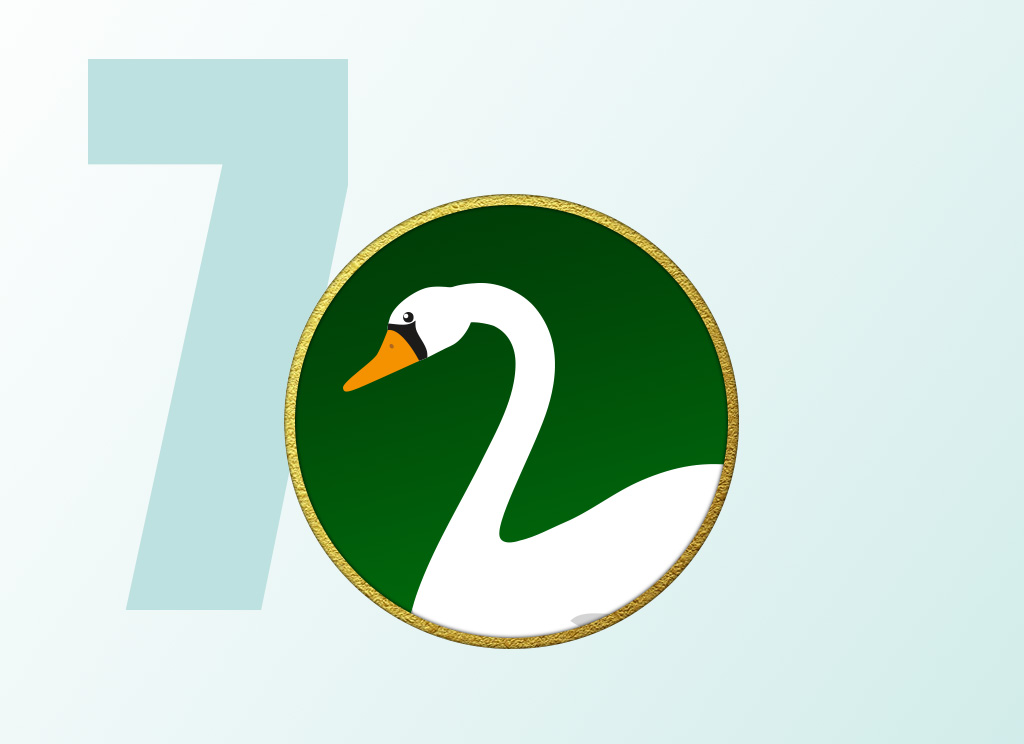I know – that sounds really weird. Catholics and pandas? What in the world do we have in common??
We can start with the basics: we are both part of God’s wildly varied and glorious creation. But there really is a lot more.
It’s All Black and White
Giant pandas, of course, are black and white. Catholicism is black and white, too. That is, we believe that there is an absolute Truth. What is good and right is always good and right, and what is foul and evil is always foul and evil. Truth is Truth regardless of where or when you live, whether you are male or female, teen or octogenarian.
Truth is truth, no matter how much man may rationalize otherwise. And signing up to follow a set of principles as espoused in the Bible is not “blindly following the Pope”. Rather, obeying what is true is good and right, and is a virtue, not a vice. Going off on your own way because you “feel” it’s right is a vice.
Pandas are downright playful animals! They climb and slide and wrestle. They’re curious and funny. We Catholics also love to have fun! Look at all the things we celebrate: feast days and saint days, baptisms and quinceaneras, Christmas (for almost 2 weeks!) and Easter (40 days!)
Modern Catholics don’t know how to incorporate the faith into their daily lives. Celebration is the way to do it. Every day has a designated saint and I really think it’s important to celebrate these, to have the rhythm of fast and feast in our lives.
Giant pandas are absolutely unique. Their fluffy teddy bear appearance and distinct coloring makes them instantly identifiable, like no other bear in God’s created realm. Catholics are downright unique as well. Unlike other Christian sects (whom we love like brothers and sisters!) we trace our lineage right back to Jesus himself, and to St. Peter. We have 2000+ years of Tradition that no other Christians can claim.
This World Is Not Our Home
Unlike so many other animals, pandas have no permanent home. (I think it’s because they sleep 12 hours a day; there just isn’t time to go house hunting.) And Catholics know that this world is not our home. Our home – eternally – is Heaven. We were created by God to know Him, to love Him and to serve Him in this world, and to be eternally happy with Him in Heaven.
It takes giant pandas a rather long time to fully mature. They start out as tiny (3 ounces!), pink, hairless animals that in no way resemble their parents. Male pandas aren’t fully mature until they are 6-7 years old, females at 4-5 years. We can easily say that it takes a Catholic a long time to mature as well. Pope Francis recently told a group of Confirmation students that the sacrament of Confirmation was “not a sacrament of goodbye.” We don’t “graduate” or stop learning our Faith. We can never stop learning more about God, about Scripture, about ourselves and our relationship to God the Father, God the Son, God the Holy Spirit.
Tenacity and Fortitude
Pandas have a rather strong tenacious streak. If they want something, they figure a way to go after it. If they want to go somewhere, it’s tough to change their minds.
Catholics call this “fortitude.” It’s one of the seven virtues, and it means that (with the help of the Holy Spirit) that we remain constant and firm in our pursuit of goodness. We fall into the ditch of sin, we seek confession. We offend someone, we beg forgiveness. And we do this over and over and over, in the hope that we will become the person God created us to be.
A Little Fun Never Hurts
Maybe it seems silly to compare being Catholic to a panda bear. But, as I’ve pointed out: God created us and He gave us a sense of humor. He gave pandas their delightful personalities. If the Creator and Master of the universe sees fit to create pandas and kittens and platypus, then He must enjoy a good laugh once in awhile. Just like us. And pandas.
 Elise Hilton is an author, blogger and speaker. Her role at Diocesan Publications is Editor & Writer with the Marketing Team. She has worked in parish faith formation and Catholic education for over 30 years. A passionate student of theology, Elise enjoys sharing her thoughts on parish communication, the role of social media in the Church, Franciscan spirituality and Catholic parenting. To enquire about booking her as a speaker, please contact her at ehilton@diocesan.com.
Elise Hilton is an author, blogger and speaker. Her role at Diocesan Publications is Editor & Writer with the Marketing Team. She has worked in parish faith formation and Catholic education for over 30 years. A passionate student of theology, Elise enjoys sharing her thoughts on parish communication, the role of social media in the Church, Franciscan spirituality and Catholic parenting. To enquire about booking her as a speaker, please contact her at ehilton@diocesan.com.


